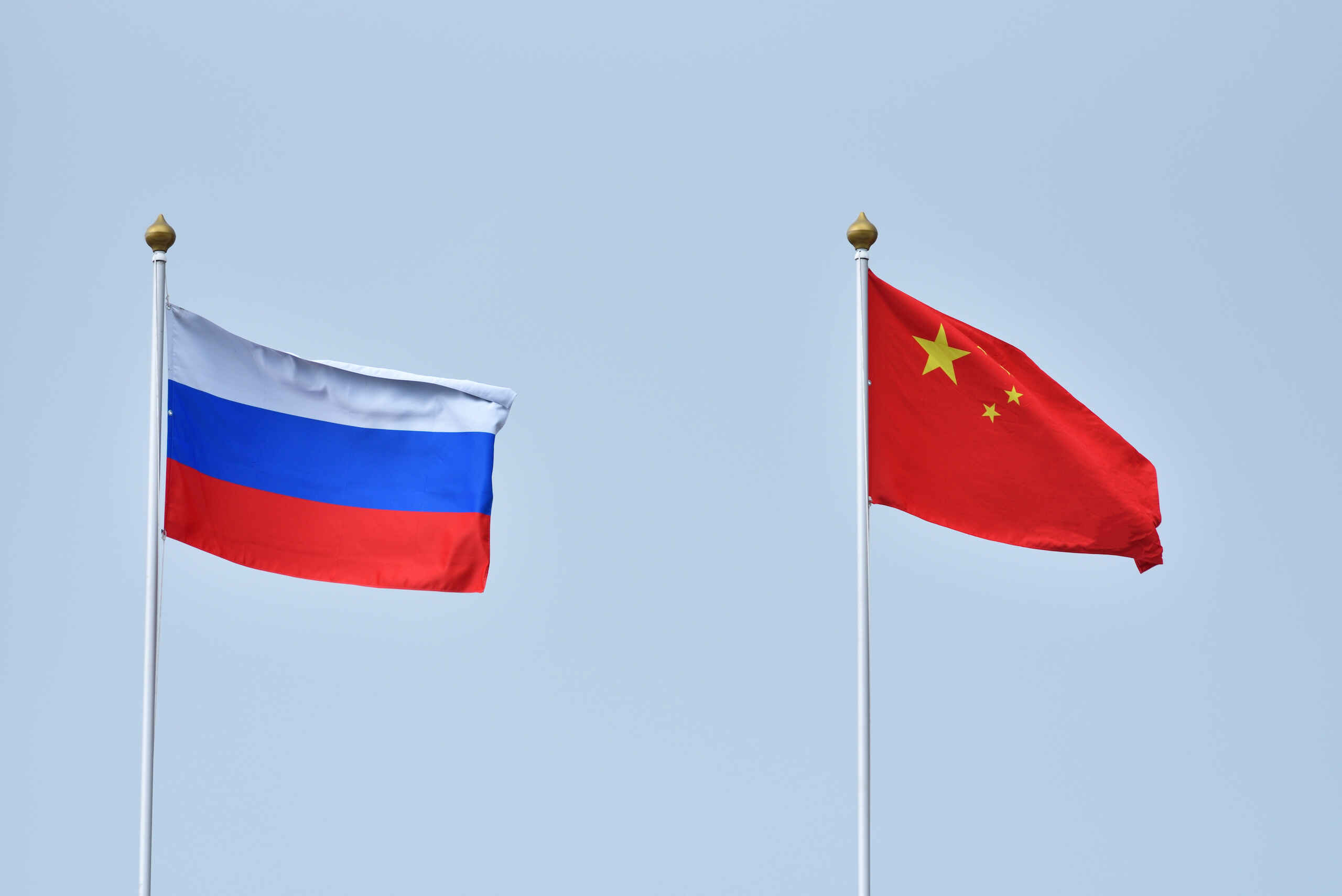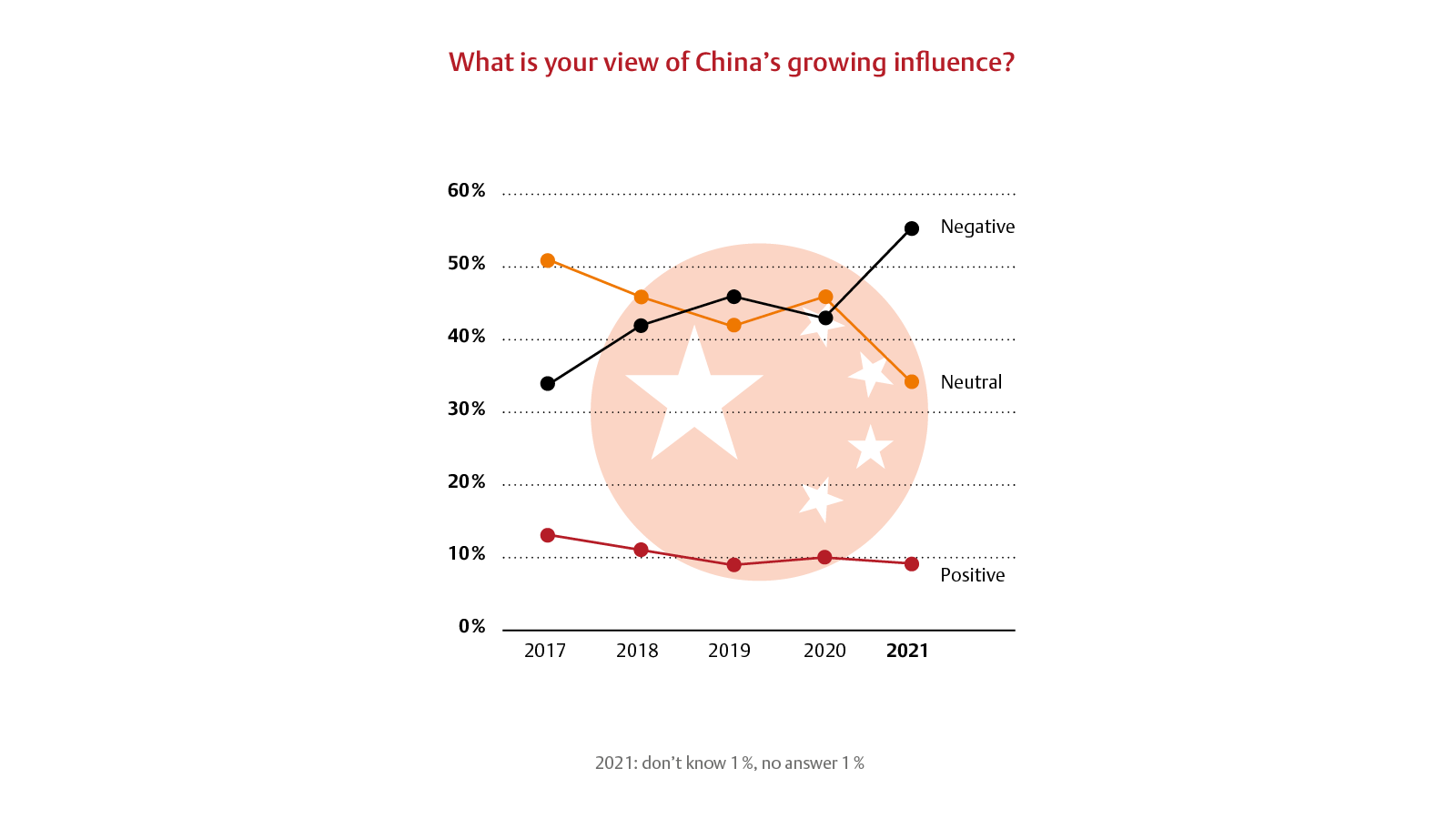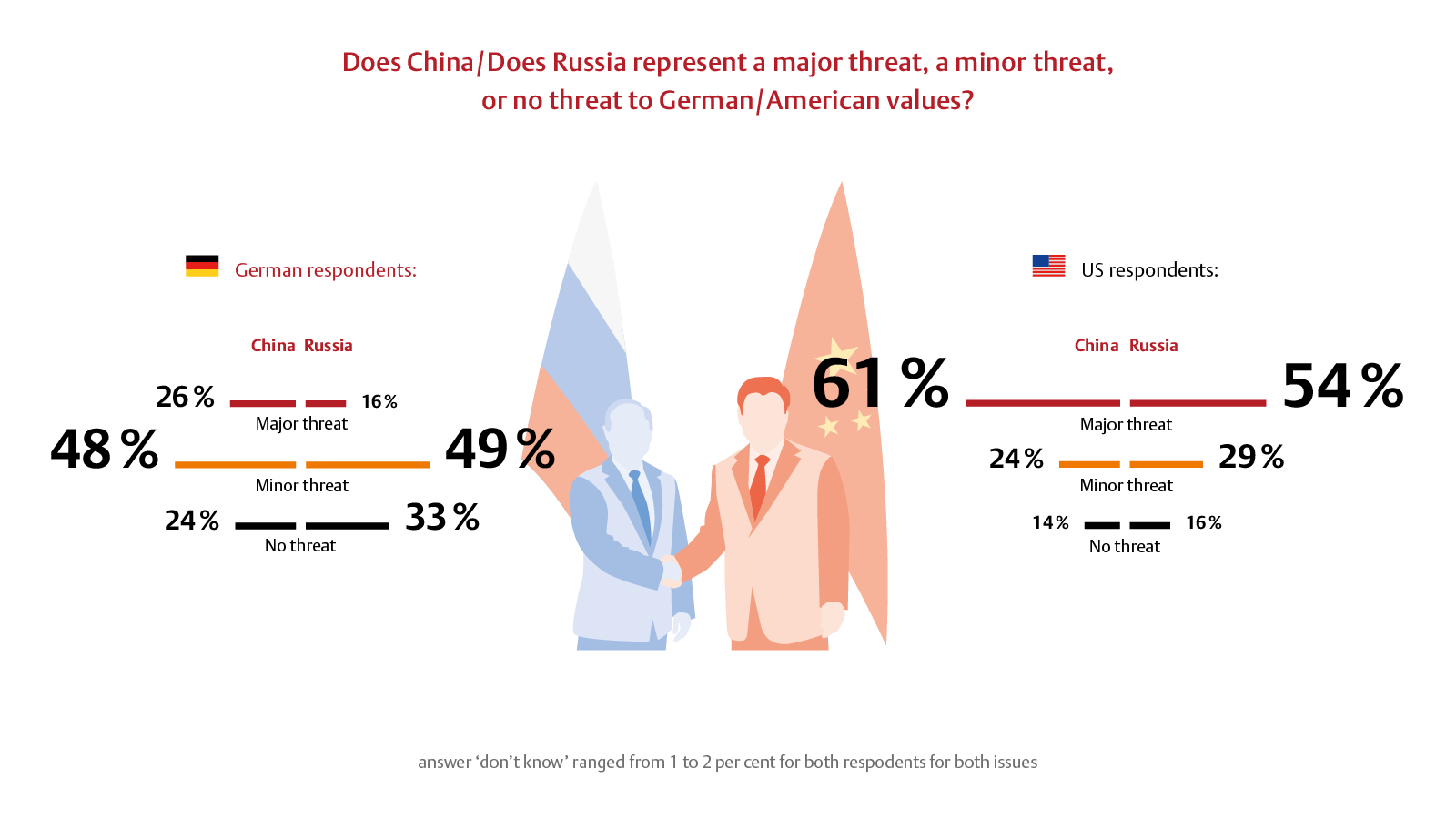
Photo: iStock/Pridannikov
“Digital tools give repressive governments the upper hand”
Andrea Kendall-Taylor and Xiao Qiang talk about digital repression in China and Russia, its impact on other countries and how Germany should respond.
Andrea Kendall-Taylor, Director, Transatlantic Security Program, Center for a New American Security (CNAS), United States.
Xiao Qiang, Founder, China Digital Times; Research Scientist, Berkeley, United States.
Körber-Stiftung: Are we currently witnessing the end of an era of digital optimism?
Kendall-Taylor: I hate to be pessimistic but the way some governments are using digital tools is concerning. In the 2000s and 2010s we saw an uptick in the number of protests worldwide, including in places like Egypt or Tunisia, where the public was able to use social media and other digital tools to challenge unresponsive and authoritarian governments. Then, we saw the backlash of authoritarian governments, who learned to co-opt those same tools to increase repression and control their citizens. Now, we are certainly in a moment when digital tools give repressive governments the upper hand, but with new innovations and an enhanced international response that could quite easily flip.
Körber-Stiftung: Xiao, are you more optimistic?
Xiao: I am exiled from my home country, China, and fight for greater freedom for people in China and the rest of the world, so I do not have the right to be pessimistic. Until the early 2000s, I believed that digital innovation was great news for repressed

and censored people. But technology has changed. While it used to empower ordinary people, it now helps large corporations to understand customer habits or states to manipulate and control their citizens. Being an optimist at heart, I am highly concerned how technology influences human freedom. Not only in authoritarian countries but also in Europe and the United States.
Körber-Stiftung: How does digital authoritarianism, a way to control citizens through technology, differ from its analogue predecessors?
Kendall-Taylor: In older authoritarian systems, it took a tremendous amount of regime capacity and resources to execute repression on a massive scale, which many authoritarian regimes simply did not have. Digital tools are lowering these costs, including the risk of backlash from the public.
“Longstanding authoritarian tactics are made more effective by the use of digital tools.”
Today, governments can be more targeted in their repression, which makes it easier to do widespread surveillance and identify opponents on a massive scale. Therefore, I would say that repressive tactics have not changed but are supercharged. This means that longstanding authoritarian tactics are made more effective by the use of digital tools.
Xiao: It is worth looking at China to illustrate what Andrea just described. I grew up in Mao’s China that already controlled every aspect of people’s lives. But what is different from analogue times is China’s very digitalized society. The Chinese state has access to literally every piece of data or is building up its capacity to get access to it – health data, data from financial transactions, geolocations through telephone companies – there is no privacy protection. Modern digital technologies, particularly Big Data, and artificial intelligence, offer a more effective and targeted way to process information and direct people’s choices.
Körber-Stiftung: What is in the digital toolbox of China?
Xiao: First, it entails information control through censorship, propaganda and disinformation. This is used, on the one hand, to control the information access of the Chinese public and, on the other hand, to build an image of the Chinese government in the world. In addition, the government uses video and audio surveillance to track people through projects such as Skynet and Sharp Eyes. Not only the police but also citizens can monitor each other. Finally, the social credit system helps the government to create a digital profile of every citizen.
Körber-Stiftung: And what about Russia’s digital toolbox?
Kendall-Taylor: In Russia, digital authoritarianism relies on three pillars. The first is legal tools. Russia drafts very vague laws and weaponizes them to target members of the opposition and thereby incentivize self-censorship. The second is a discrete online surveillance system called SORM, which allows the regime to filter online content. And the third one is disinformation and the manipulation of the information environment, which helps the regime drown out criticism and inflate perceptions of regime support, lowering the prospects for protest. The Kremlin is also taking steps to disconnect from the global internet.
Körber-Stiftung: This sounds like China’s ‘Great Firewall’.
Kendall-Taylor: While Russia and China have their own distinct models of how they have built their internet, they are learning from each other. Russia looks at China’s sovereign internet and the greater control of the Chinese Communist Party over its information space. And the Chinese Communist Party has adopted some of the Kremlin’s disinformation tactics, acting beyond its borders to sow confusion and obscure the truth as we saw so plainly in the aftermath of the COVID-19 crisis.
Körber-Stiftung: Are there also spillover effects from China to other countries?
Xiao: China is exporting its surveillance and censorship technologies to some hundred countries in Africa, Latin America, Southeast Asia and the Middle East. Not only but particularly authoritarian regimes find these technologies very convenient for their political goals.
Körber-Stiftung: The use of technology from Chinese companies was widely discussed with regard to the 5G rollout in Europe. What is your take on this?
Xiao: To put it very simply, Huawei is a corporation highly connected to the Chinese state and military. Do not trust Chinese corporations and do not let

them get into your critical information infrastructure, period.
Körber-Stiftung: What about spillover effects from Russia?
Kendall-Taylor: Russia and increasingly China are using their digital tools beyond their borders to shape the global information environment. But, in the case of Russia, it does even exponentially at home what it has done outside its borders in liberal democracies.
Körber-Stiftung: How does civil society in China and Russia react to these developments?
Xiao: In China, civil society has almost no power to push back against its government’s agenda, for example, on facial recognition. In contrast, many also welcome surveillance technology because it goes hand in hand with digital convenience, safety and economic development.
Kendall-Taylor: There is also less and less capacity for Russian civil society to do anything about these developments. Repression in Russia has grown markedly, and it has become much more difficult to think about opportunities even with regard to the question of how the international community could support civil society in Russia. The direction that Russia took, particularly in the last year to two years, is extremely concerning. And it is going to be a significant challenge moving forward.
“Germany should also consider giving more support for the use of sanctions against human rights abusers.”
Körber-Stiftung: How should Germany’s next government respond?
Kendall-Taylor: I hope that the next German government will play a proactive role in EU initiatives, like the Trade and Technology Council with the United States, and set a positive agenda about the appropriate use of technology that reflects democratic norms and values. Germany should also consider giving more support for the use of sanctions against human rights abusers.
Körber-Stiftung: How could this be done?
Kendall-Taylor: For example, with the help of the European Magnitsky Act, a vehicle to target and raise the costs for people using technology to perpetrate human rights abuses. Likewise, efforts to enhance export controls could ensure that Western technologies are not being used for human rights abuses. The Trade and Technology Council ultimately will be a critical forum for addressing these and related issues. The United States is looking for a proactive partner in the European Union, and Germany is a major engine of progress in some of those spaces.
Körber-Stiftung:Xiao, what are your expectations of Germany?
Xiao: Germany, being an important democratic country, should build an alliance with the United States, but also Australia, Japan and other European countries, to defend democratic values and freedom. That includes taking measures on technology, import controls, and an awareness of the rise and influence of Chinese digital authoritarianism in Germany and Europe. The next German chancellor needs to play a bigger role in this and cooperate with leaders of other democracies.